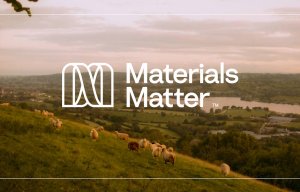
Impacts on the ground measured by new standard
Recycled Claim Standard 2.0 and Global Recycled Standard 4.0 have both been revised and re-released with significant updates.

3rd July 2017
Innovation in Textiles
|
Lamesa, TX
Over the past year, a group of stakeholders was convened to review Textile Exchange's recycled standards. The International Working Group (IWG), led by Textile Exchange, included recyclers, manufacturers of recycled product, other recycled standard owners, brand and retail users of the standards, and certification bodies. Companies, including Unifi, Geentanjali Woolens, Hohenstein, H&M, and Global Organic Textile Standard were among the working group members.
“It was my honour being a part of the IWG for revision of the RCS & GRS Standards. The entire process was extremely democratic; everyone’s comments and suggestions were considered debated and then finalised. I thoroughly enjoyed dedicating my time to the IWG. The final standards are excellent, precise and address most of the processes and concerns involved in recycling. We are confident that the implementation of the new RCS 2.0 and GRS 4.0 will encourage a lot more manufacturers to apply for certification making it more globally accepted,” said Deepak Goel, Geetnajali Woolens, PVT LTD.
The Recycled Claim Standard (RCS) and Global Recycled Standard (GRS) provide verification of recycled materials, and then track the material through to the final product. The GRS includes additional social, environmental and chemical processing requirements. In 2016, the number of units certified to the GRS grew from 595 to 961, a growth of over 60%. The RCS saw an almost 200% jump from 78 units in 2015 to 220 in 2016.
A key change in both standards is the introduction of the Reclaimed Materials Supplier Agreement. This document is said to provide more visibility to the suppliers of reclaimed materials. Guidelines have been introduced for added clarity and consistency of recycling claims, including post-consumer and pre-consumer.
A key change in the Global Recycled Standard is the adoption of ZDHC's Manufacturing Restricted Substance List v1.1 (MRSL). The MRSL has been developed by the industry to address intentional use of potentially hazardous substances. The MRSL will replace GRS's previous Prohibited Substance List. The Zero Discharge of Hazardous Chemicals (ZDHC) Programme takes a holistic approach to tackling the issue of hazardous chemicals in the global textile, leather and footwear value chain.
Other changes and additions include new examples of accepted recycled inputs, updated wastewater limits, and clarifications.

Business intelligence for the fibre, textiles and apparel industries: technologies, innovations, markets, investments, trade policy, sourcing, strategy...
Find out more